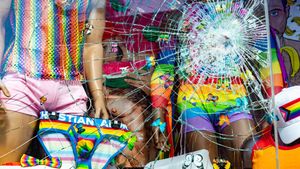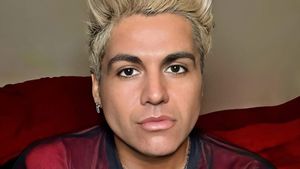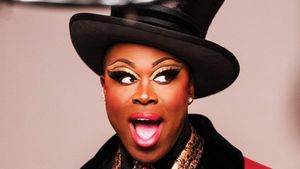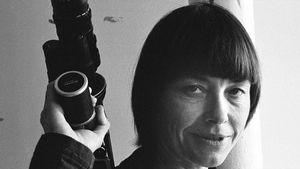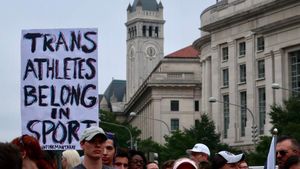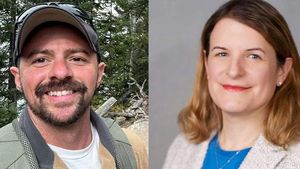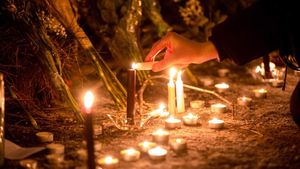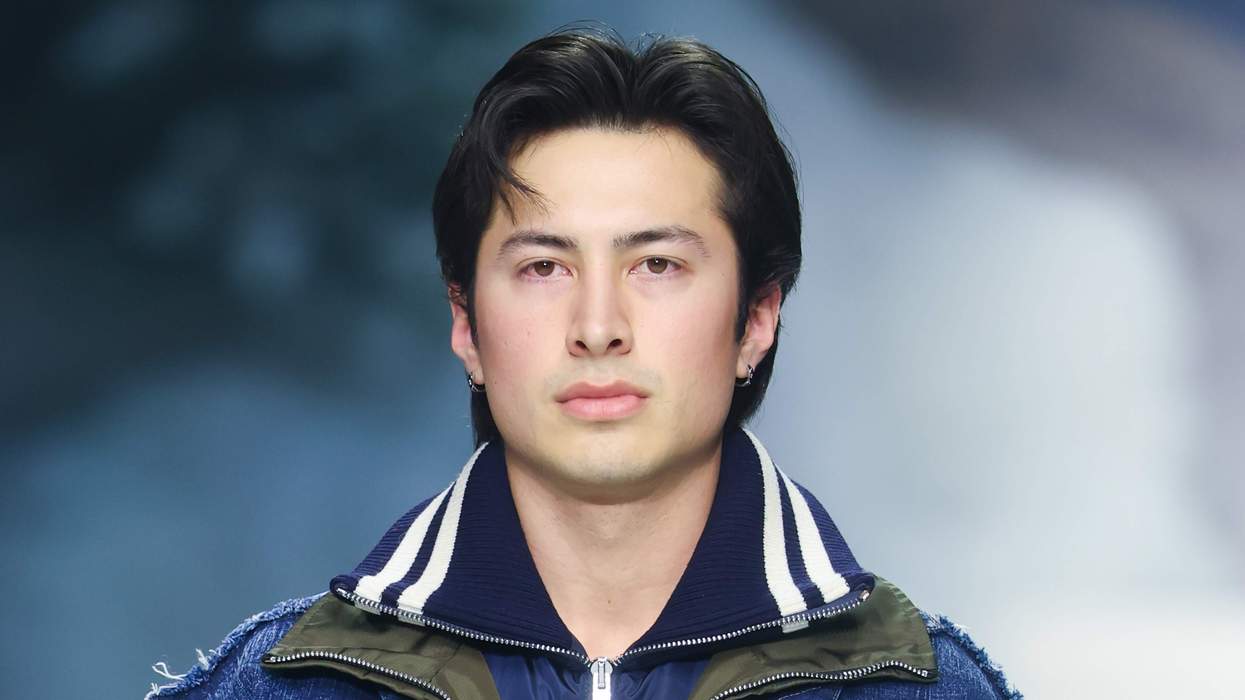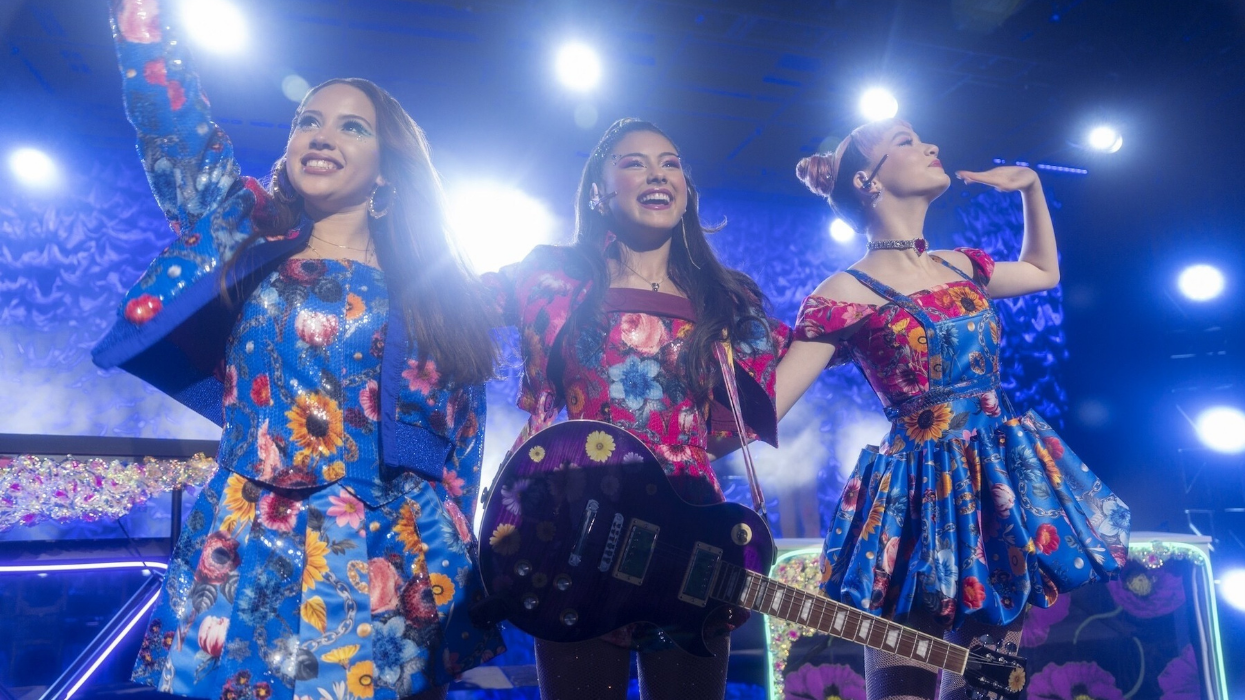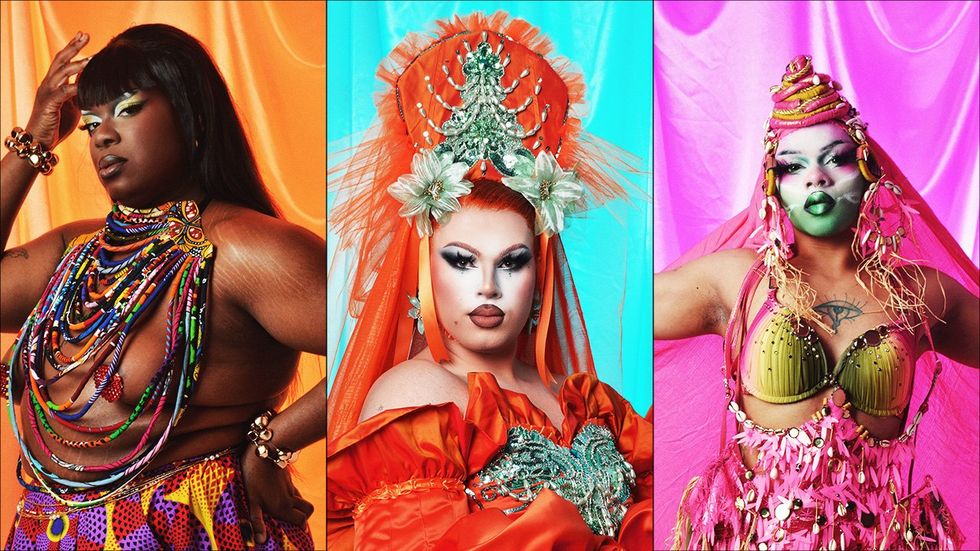
Cherry Jaymes; Atomic Annie; Maljo Blu
Voxigma Lo
The Trump administration's efforts to undermine queer people's civil rights, healthcare access, and historical records, along with the violent deportation and internment of immigrants, raise essential questions about what the future looks like for those at the intersection of each community.As threats to immigrants, queer people, and the preservation of their shared histories grow increasingly dire, drag artists across New York City are taking to stages and streets to immortalize their own immigrant stories.
Felicia Oh
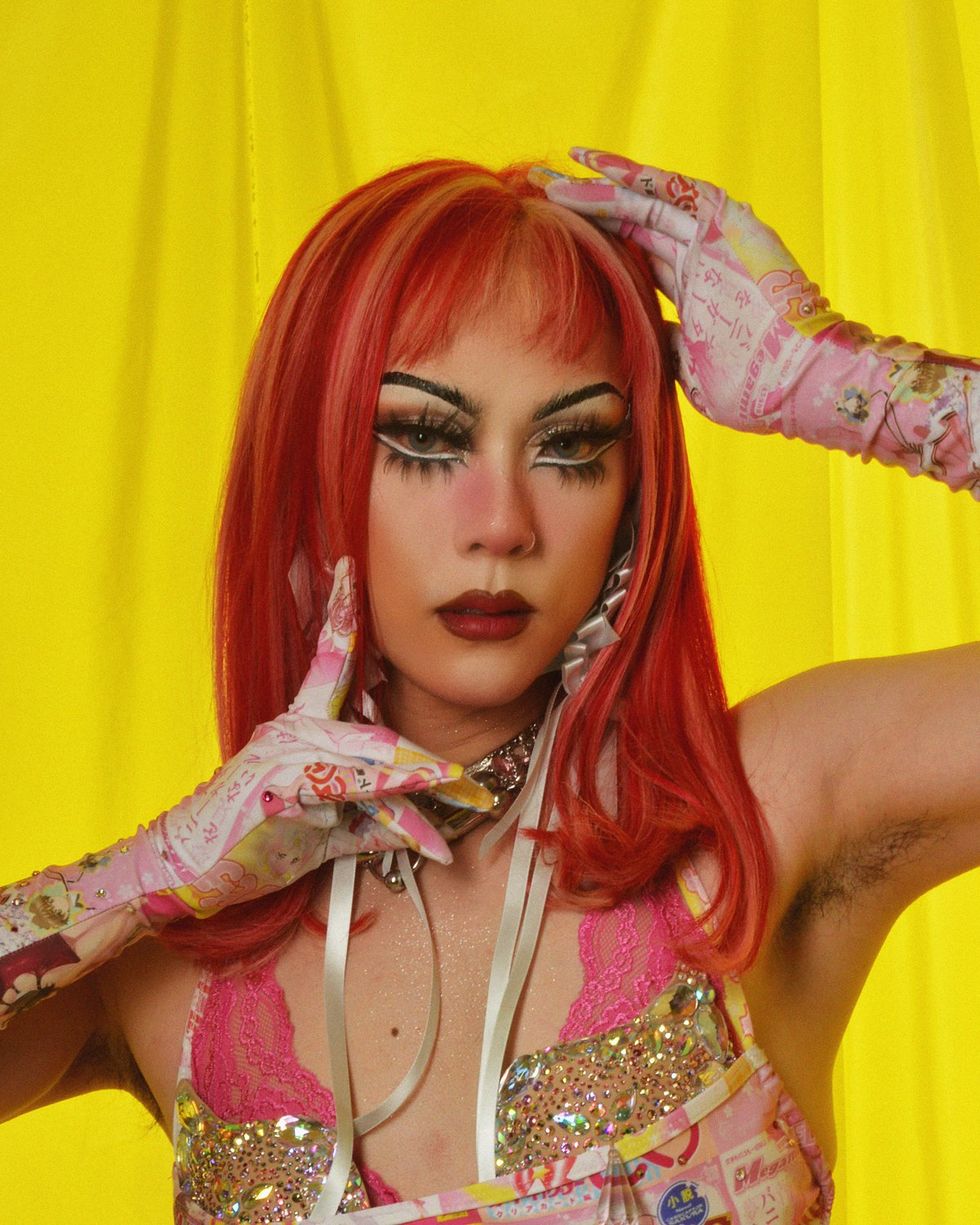
Felicia Oh
Voxigma Lo
For Felicia Oh, a 30-year-old drag queen and Taiwanese immigrant, visibility means everything. Felicia began performing in 2021, immediately noticing a lack of safe spaces for AAPI audiences throughout the New York City drag scene.
Resonating with the feeling of being out of place as an immigrant, Felicia felt responsible for creating the spaces she wanted to see. "In the States…or [your] home country, you can still feel like an outsider," she says, "Drag helped me find that sense of belonging I never quite found anywhere else."
Felicia took on the responsibility of organizing AAPI-focused drag events herself, booking Asian performers and collaborating with Asian-owned businesses, thereby bolstering queer patronage. "[Everyone] is looking to see themselves represented onstage … There aren't enough spaces in New York where AAPIs can come and bask in their queer joy."
Felicia continues, "Drag has helped me feel proud to be from Taiwan, and I always try to champion that in my drag and the organizations I work with."
Cherry Jaymes
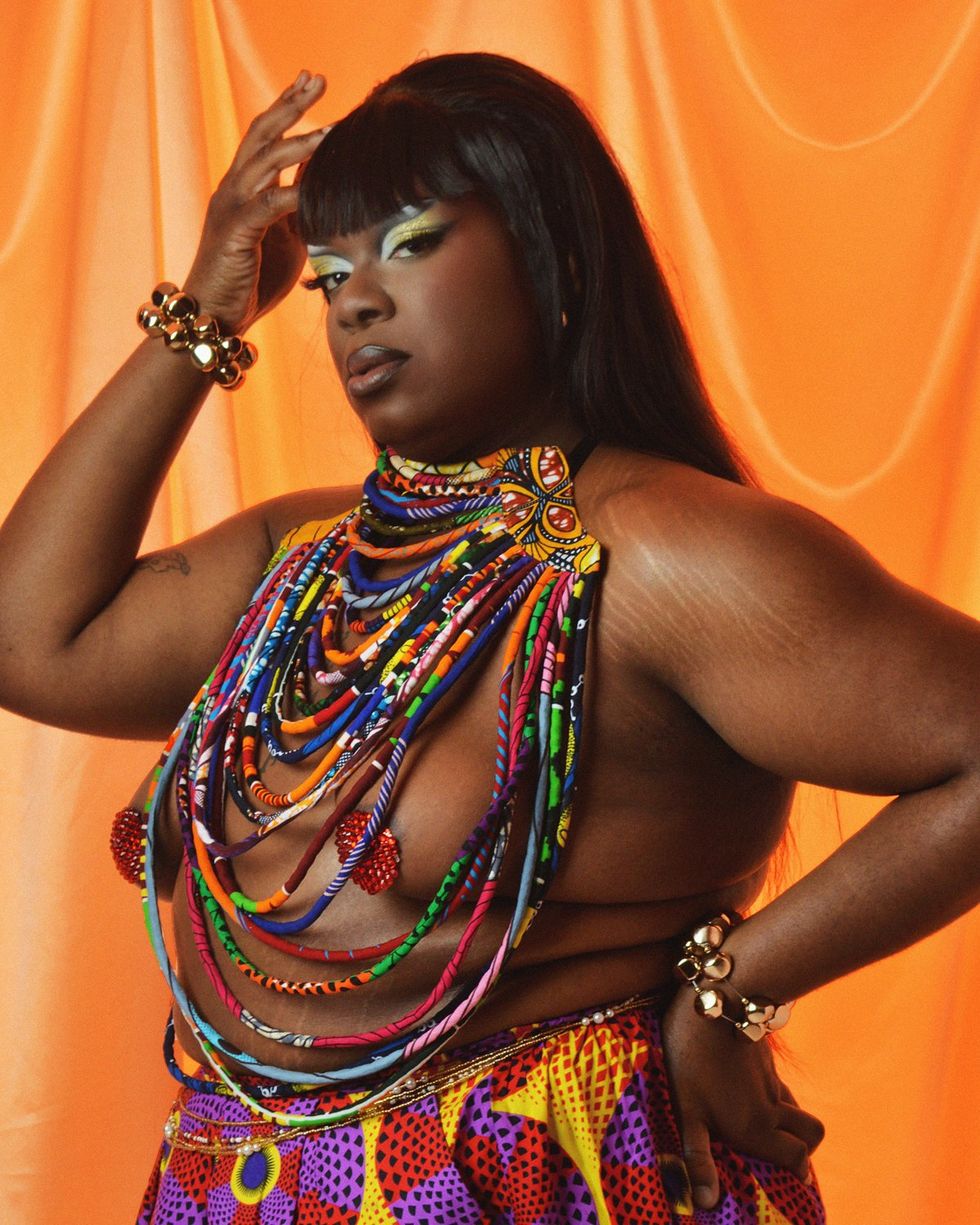
Cherry Jaymes
Voxigma Lo
Cherry Jaymes, 27, is one of the most charismatic forces in New York Nightlife, carving out spaces for Black trans people as a drag queen, model, and theater performer. A Liberian refugee, Cherry's family fled from the nation's capital city, Monrovia, to Baltimore, MD, when she was seven due to the ongoing war. "My first conscious memories were…living in fear because there was a full-blown civil war happening."
Cherry says the whiplash of such an abrupt move to the U.S. intensified her childhood need for an artistic outlet, and she later found theater as a source where she could flourish in her creativity.
Cherry explains, "Liberian culture has shaped me because it's something I always come back to...In my journey as a trans woman, I look at myself as I keep changing, and realize I look like the Liberian women back home…I look like the women who came before me." She says, feeling "so lucky to have an inkling of what my diaspora is as an Americo-Liberian trans woman, and doing drag."
Xana Whoria
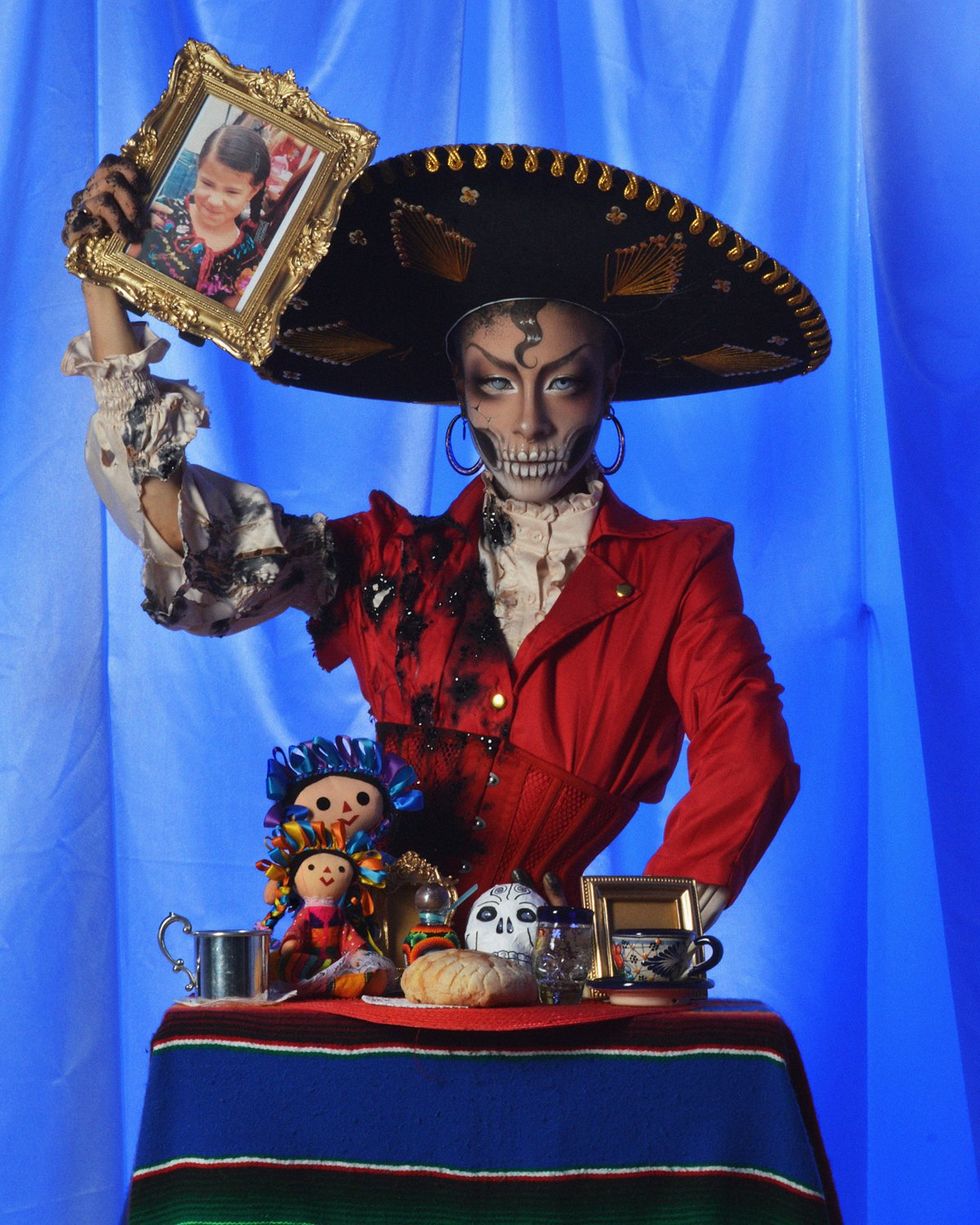
Xana Whoria
Voxigma Lo
To say Xana Whoria is simply a multi-hyphenate would be the understatement of the decade. At 26 years old, the Florida-born Mexican drag artist is not only a prolific, award-nominated drag performer but also a Nike coach and decorated athlete, currently holding the record for the fastest ever course run at the New York City Marathon in the non-binary division.
Xana explains that due to growing up outside of Mexico, living everywhere from South America to Europe, "[Mexico] never felt like where my roots were planted." Elaborating, they explain that drag felt like a means of reconnection from the opposite end of the continent, "If I can't be in Mexico...Through drag, I can embody my culture in a genderless way that I didn't know was possible."
For Xana, drag is a medium for healing the person underneath it all. Growing up in a culture where "gender roles are completely imposed on you," Xana explains how their mother would force them to wear enormous hair bows, attend church, and speak in a feminine manner. Xana says their drag allows them to reevaluate the gendered roles they were forced into: "I realized I can wear these bows, and I can still dress in a more masculine way, and I can do these things from my culture on my terms."Emi Grate
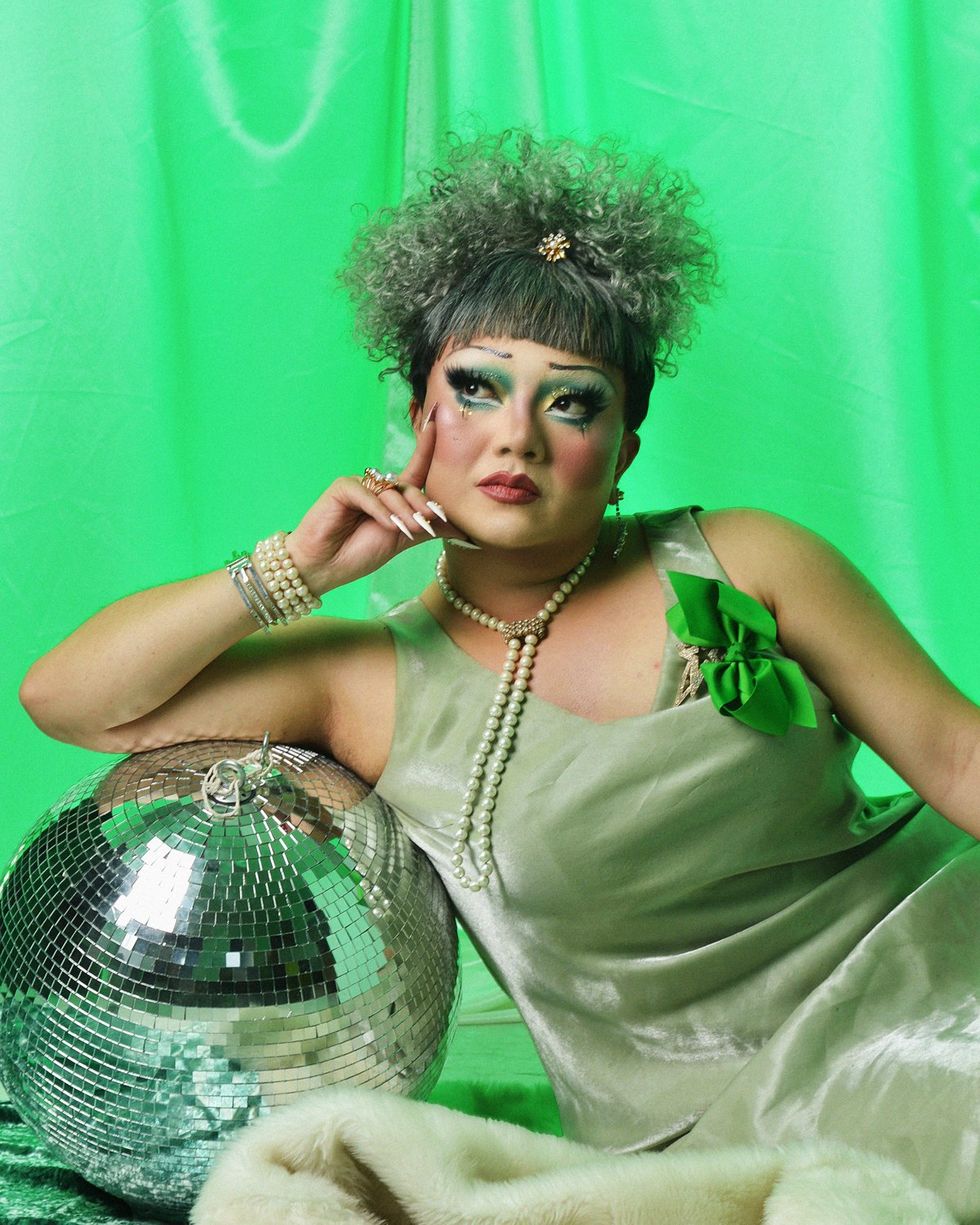
Emi Grate
Voxigma Lo
Emi Grate, a 31-year-old drag artist from Mandalay, Burma, says her drag is about shifting how American drag audiences view immigrants. Operating at the intersection of arts, activism, and academia, Emi's intellectual approach to drag uses entertainment to educate.
Emi moved to the U.S. for college, and they questioned "everything about America." This led them into "some uncomfortable situations being queer, from Asia, in a sea of Midwesterners." Having moved from Burma to multiple Midwestern universities, and ultimately to NYC, Emi explains how constant emigration made sense to them. And by the time they moved to New York, their drag persona had already been born.
Emi explains that many Americans' negative attitudes toward immigrants stem from how they are inherently discussed as outsiders. "'Immigration' is the idea that someone is entering your space. Emigration frames it as leaving my space, my comfort zone, and going somewhere else." Emi states, "So I think that distinction was an important philosophy for my drag…it's all about taking up space for myself rather than being a foreigner in someone else's."
Maljo Blu
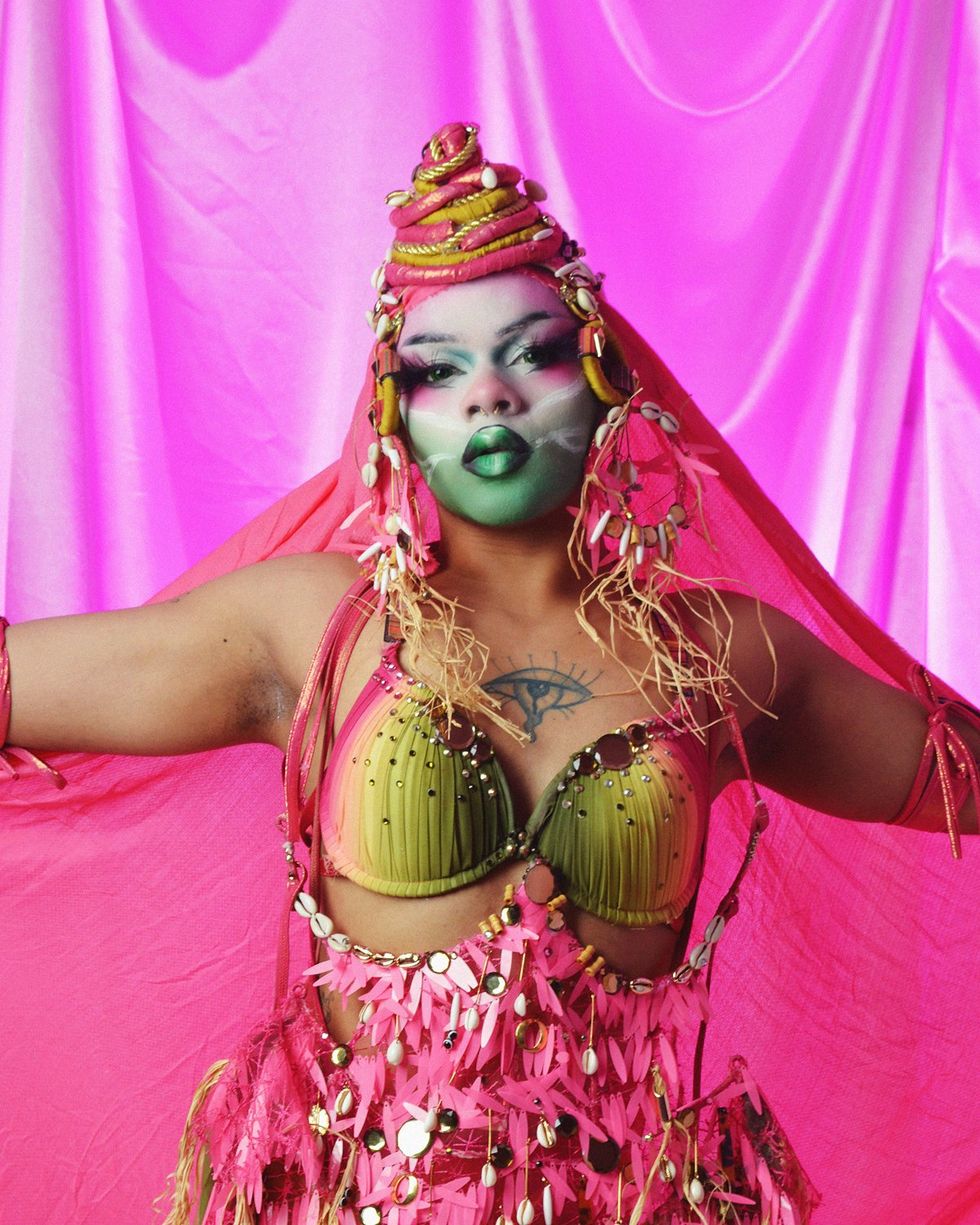
Maljo Blu
Voxigma Lo
Maljo Blu, a 25-year-old drag artist born and raised in New York City, says drag has made her feel like a storyteller. "Every drag queen is a production in themselves," she explains.
Maljo explains that her mother, an immigrant from Trinidad and Tobago, played a prominent role in developing her close connection with her culture, taking her to visit the island every summer since birth. In Maljo's drag, the Trinidadian cultural traditions she grew up with play a key role in many looks and performances she's crafted, saying, "In retrospect, I realized that [at Carnival] I'd been watching my family do drag all together. The beads, feathers, wigs, makeup; there was just this sense of pageantry."
Maljo's drag is all about placing cultural mythology through a theatrical lens. "We talk about immigrant stories [mostly] from a place of strife." She says. "Everything I do with my drag comes from a place of joy...I get to take a little bit of my family's joy and bring it to the stage."Daniella Darling

Daniella Darling
Voxigma Lo
With an incandescent rise to prominence in the drag and burlesque scenes of New York nightlife, Daniella Darling is as genuine a New York ingénue as they come, boasting a resumé and showmanship far beyond her years.
The 21-year-old Daniella, born in Bogotá, Colombia, was adopted by white parents as a baby and raised in Carmel, Indiana. "They always tried their best to connect me with my culture, but there were big pieces that were missed," she explains.
Despite being a first-generation American herself, Daniella says her status as an immigrant is "nuanced," she explains, as she didn't "know if I was allowed to identify as an immigrant [or] what to make of my heritage being different from the rest of my family."
Due to the details of her adoption process, Daniella still has little information about her biological family, taking her many years to feel comfortable with so many unanswered questions regarding her heritage. At the same time, Daniela shares how she would never know what her biological mother looks like. "I can look in the mirror every day for the rest of my life and not know what features are hers…My drag is about connecting with my roots, and using my femininity to find the pieces I still can't see."
Atomic Annie
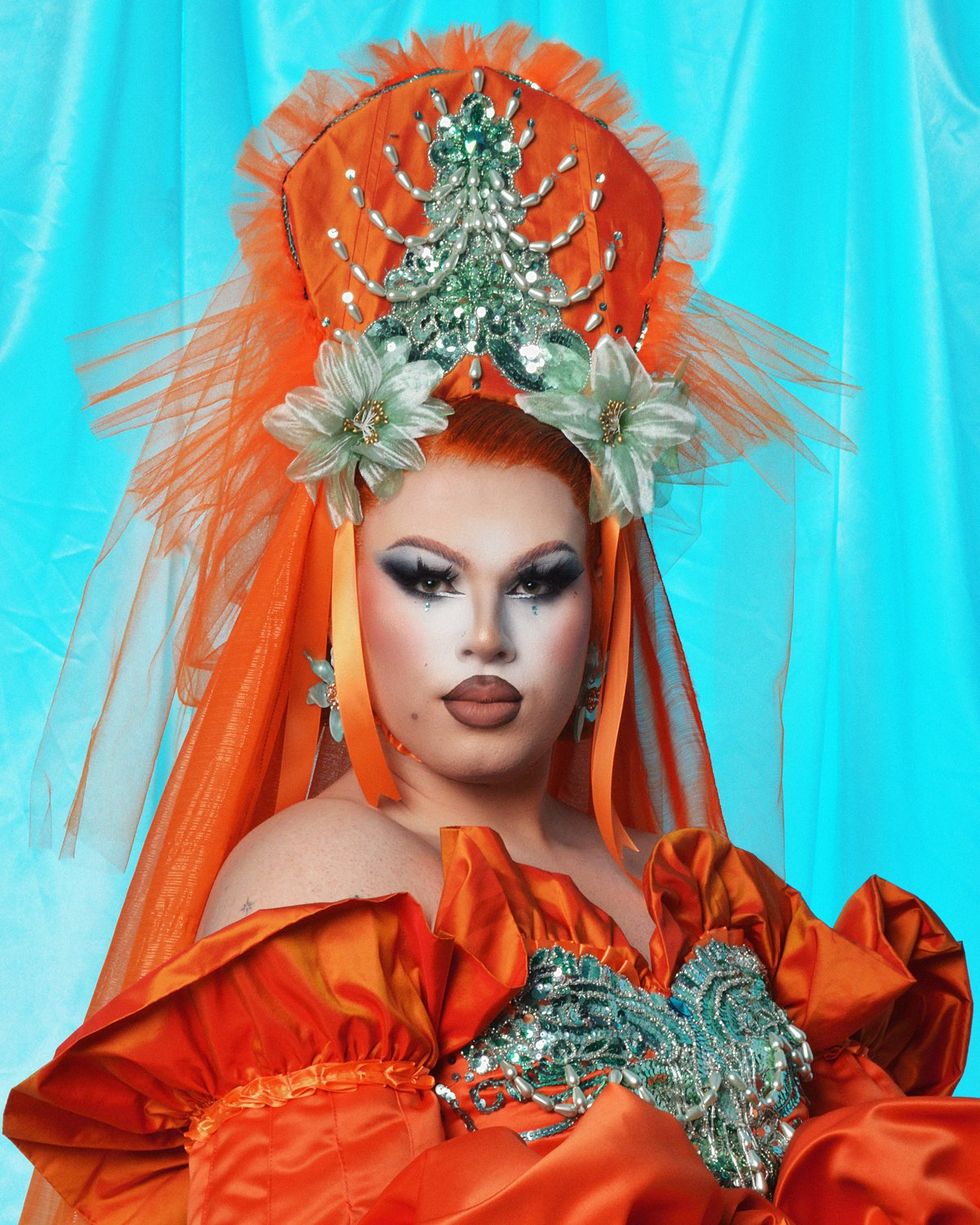
Atomic Annie
Voxigma Lo
Atomic Annie, the author's drag persona, comes from a family with a complex immigration history, winding centuries from frigid Russia to coastal Italy. Despite always feeling drawn to her ancestry, it was not until Annie's grandmother passed away that her curiosity about family culture began to feel like an inheritance.
The daughter of a Russian-born father, whose family fled Kishinev (now Chișinău, Moldova) for New York, Atomic’s grandmother, Ellen, believed deeply in the importance of documenting our history. On her grandmother's 80th birthday, she penned a "legacy letter" reflecting on her family's difficult assimilation as Eastern European Jews in New York, writing, "My grandmother never really assimilated. She spoke only Yiddish, and she was an unhappy person … Unfortunately, no one wanted to talk about the family's early life in Russia, so our questions went unanswered."
For decades, Atomic Annie’s grandmother researched their lineage, collected artifacts, exchanged letters with distant relatives, and assembled scrapbooks packed with sepia photographs and long-neglected documents, turning scattered fragments into a mosaic of their family's past before America.
Since her passing, Atomic Annie has felt a sense of responsibility for preserving our history, and her drag has evolved into something more culturally grounded. I walk in the footsteps of my immigrant ancestors and weave their history into my craft as a queen descended from immigrants.
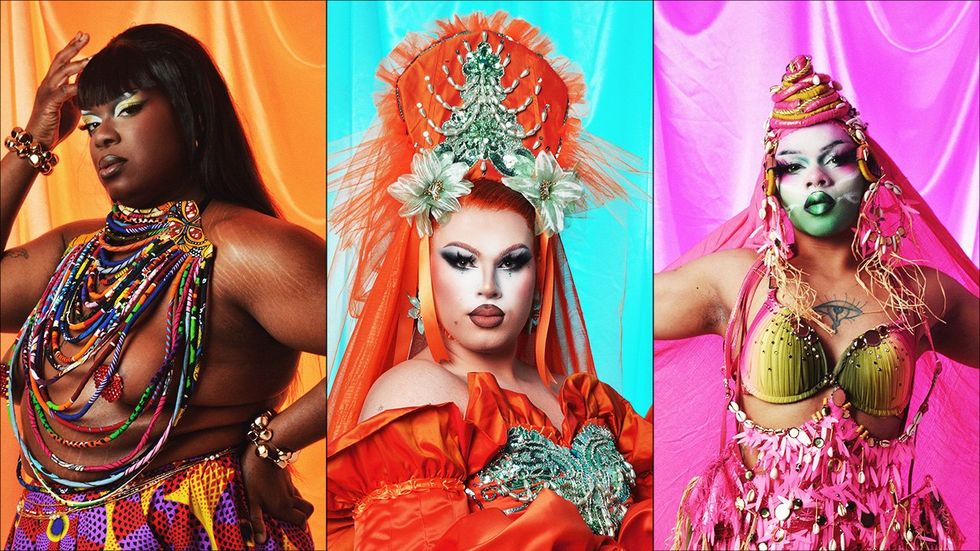
Cherry Jaymes; Atomic Annie; Maljo Blu
Voxigma LoPhotos by Voxigma Lo for Jake Cohen
Arranged for Pride.com by Mariusz Walus, Graphic Designer
Perspectives is dedicated to featuring a wide range of inspiring personal stories and impactful opinions from the LGBTQ+ and Allied community. Visit pride.com/submit to learn more about submission guidelines. We welcome your thoughts and feedback on any of our stories. Email us at voices@equalpride.com. Views expressed in Perspectives stories are those of the guest writers, columnists and editors, and do not directly represent the views of PRIDE.com or our parent company, equalpride.

